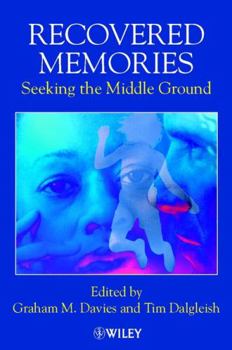Recovered Memories: Seeking the Middle Ground
Select Format
Select Condition 
Book Overview
The phenomenon of recovered memories has excited much controversy in recent years amongst professionals with extreme positions being held: either all such memories are, by definition false, or any such claim is an attempt to deny the victims of abuse their rights to confront their abusers. In this refreshing new approach to the problem Graham Davies and Tim Dalgleish have assembled leading figures from both sides of the debate to provide a balanced overview of empirical evidence as well as evidence from clinical practice.
Recovered Memories: Seeking the middle ground, unlike most other writing on the topic, eschews extreme positions. It provides clinicians with findings from the latest research to enhance their understanding of memory and presents pure researchers with a range of experiences encountered in clinical practice for which they presently have few explanations. Topics include the impact on family and community members, the latest findings on implanted memories and discussion of clinical guidelines for therapeutic practice to avoid potential influence on memory. Having weighed the evidence, a framework is offered in which true and false recovered memories are seen as the inevitable compliment of true and false continuous memories.
This important new collection should not be missed by anyone with an interest in memory, whether engaged in a clinical, legal, child protection, family welfare or experimental research capacity. It is the most authoritative and comprehensive review of the evidence on both sides available to date.
Recovered Memories: Seeking the middle ground, unlike most other writing on the topic, eschews extreme positions. It provides clinicians with findings from the latest research to enhance their understanding of memory and presents pure researchers with a range of experiences encountered in clinical practice for which they presently have few explanations. Topics include the impact on family and community members, the latest findings on implanted memories and discussion of clinical guidelines for therapeutic practice to avoid potential influence on memory. Having weighed the evidence, a framework is offered in which true and false recovered memories are seen as the inevitable compliment of true and false continuous memories.
This important new collection should not be missed by anyone with an interest in memory, whether engaged in a clinical, legal, child protection, family welfare or experimental research capacity. It is the most authoritative and comprehensive review of the evidence on both sides available to date.
Format:Paperback
Language:English
ISBN:0471491322
ISBN13:9780471491323
Release Date:December 2001
Publisher:Wiley
Length:296 Pages
Weight:1.05 lbs.
Dimensions:0.7" x 5.9" x 9.0"
Customer Reviews
0 rating





